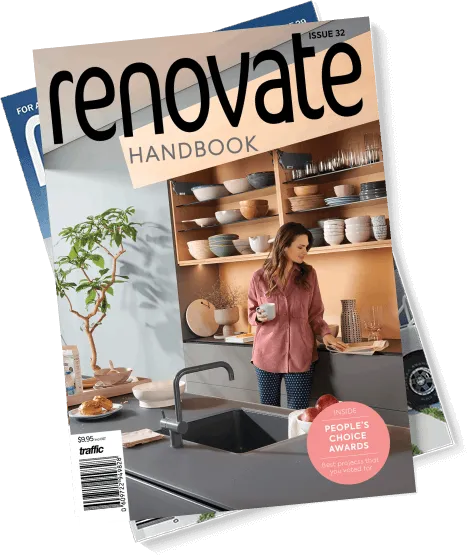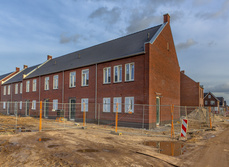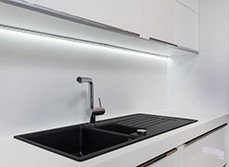The Gas Boiler Ban of 2025: What are your options?
Find out what the Gas Boiler Ban means for you and your home!

The media is alight with reports of increasing energy bills – particularly as the weather gets colder and more homes than ever need to be kept warm and dry. As the whole world focuses more on sustainability and greener living, especially post-COP 26, the on-the-horizon gas boiler ban is being discussed more than ever. But what it is, what does it mean for homeowners and what are your alternative boiler options? Let us cover it all with you…

Why is a Gas Boiler Ban being presented?
Gas boilers are one of the least ‘green’ energy and heating options for homes and also a large contributor to greenhouse gas emissions. The British government has a ‘net zero’ plan to achieve by the year 2050 and so in ruling out gas boilers will be able to swiftly make progress toward this goal. Currently, natural gas boilers in homes produce almost 60 million tonnes of carbon dioxide every year in the UK (source: National Housing Federation) – a huge emission compared to the 27 million cars on British roads producing 56 million tonnes.
At present, it’s estimated that around 1 million homes in the country use low-carbon heating systems, and the other 29 million use natural gas boilers; so it’s a huge threat to the climate and to the government’s plans to lessen impact on it.
When is the Gas Boiler Ban and what does it constitute?
Plans to ban gas boilers currently feature in two parts of upcoming government legislation; although these two parts are timed a decade apart and have varying requirements.
The first gas boiler ‘ban’ date is 2025, which marks the beginning of the Future Homes Standard. This plan stipulates that all new-build properties constructed in England from 2025 onwards must be future-proofed with low-carbon heating systems and high levels of energy efficiency throughout. Although detailed exact requirements have yet to be released, it is expected that no new homes will be permitted to connect to the gas network – so none of them could be built with a natural gas boiler installer. While this exact connection ability is yet to be confirmed as being removed, it Is being consulted on as part of the government’s Heat and Buildings Strategy. Indeed although there are plenty of reasons why heat pumps and other energy efficient heating systems may not be appropriate for all homes, it does seem likely that this requirement will be introduced. A date for any gas boiler ‘ban’ or other restrictions are yet to be confirmed but are expected soon.
In 2035 (estimated), a ban will be placed on the installation of natural gas boilers in existing properties. Rather than a blanket ban approach, however, this focuses only on the installation of new boilers and will be an ‘encouragement’ toward low-carbon technology in order to phase out natural gas boilers. An exact date will be confirmed for this too as part of the Heat and Buildings Strategy.

Are the government doing anything to help homeowners with Gas Boilers out?
There are several government schemes in place aiming to encourage homeowners to switch their heating methods to a low-carbon system. These include:
- The Boiler Upgrade Scheme – allowing homeowners to apply for £5,000 - £6,000 to have heat pumps installed in place of a natural gas boiler
- The Renewable Heat Incentive – paying back the difference in capital cost to install a renewable heating system in place of a natural as boiler with quarterly payments over a 7 year period
- NEST Wales – providing low-income homes and homes with disabled residents grants toward the cost for heat pump installation
- Home Energy Scotland – the provision of interest-free loans to pay the upfront costs of air source or ground source heat pumps.
The schemes in place are growing, developing and changing all the time so it’s always worth checking in with your local renovations specialist or local authority for more information on what is available and applicable to you.
What alternatives are there to a Gas Boiler?
Just because natural gas boilers are the norm in homes doesn’t mean they have to be – and as above, they definitely won’t be forever! There are several alternatives, including (but not limited to):
- Heat pumps – usually air source (ASHPs), ground source (GSHPs) and hybrid. These all work slightly differently but essentially harness natural heat and convert it to bring it into a boiler and into your home. Heat pumps are a favourite amongst sustainability specialists and the government alike as they’re three to four times more efficient than gas boilers. However, heat pumps do require some space internally and externally for a home and so aren’t suitable for every home.
- Hydrogen boilers – low-carbon heating systems that use water (the by-product of burning hydrogen) to heat homes. These are currently being safety and viability tested by the government for varying degrees of hydrogen mixes.
- Biomass boilers – a renewable heating system, biomass boilers burn natural materials such as logs, chips or wood pellets; providing heating and powering hot water boilers. These boilers are fairly large but will fit in most utility rooms – and space must also be set aside for fuel storage.
- Solar thermal panels – only able to generate hot water, solar thermal panels can help lower heating costs when used alongside a heat pump or (preferably non-traditional) boiler.

There are a lot of unknowns with exactly what lies ahead for natural gas boilers, but one thing is for sure – they won’t be around indefinitely. In order for homeowners to be best prepared for upcoming restrictions and new regulations it is undoubtedly best to plan ahead. Now’s the time to explore options, consider what may work best for you and your home and investigate into feasibility. There’s many ways to increase your home’s efficiency and a boiler is a major one. Invest now and reap the benefits for years to come.
For further advice on the growing schemes and any further developments that may influence your home renovations and future improvements, get in touch today with your local renovations specialist.
Read Next
All Refresh Renovations franchises are independently owned and operated.
Processing...
Talk to a renovation consultant today
If you would like to find out how Refresh Renovations® can support you with a high quality, efficient home renovation, get in touch today. Your local Refresh Renovations consultant will be happy to meet with you for a free, no obligations consultation.




